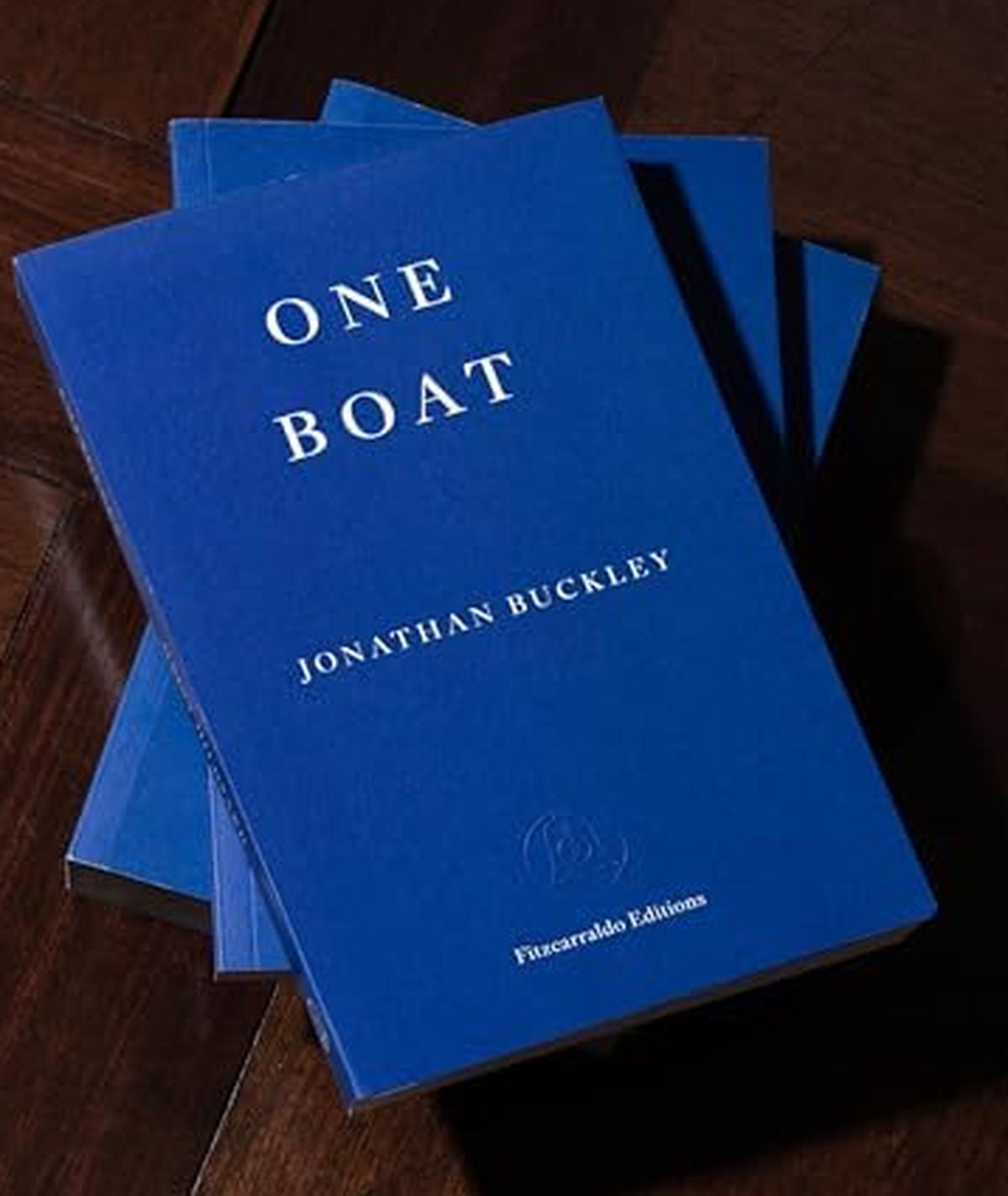Buckley’s narrative embodies the reflective quality of travel, making space for emotion, doubt, and hope
Published - November 03, 2025 09:53 am IST
The novel is set in a Greek coastal town. | Photo Credit: Vladimirs_Gorelovs
“Remember that you are an actor in a drama of such sort as the Author chooses — if short, then in a short one; if long, then in a long one.” Jonathan Buckley’s One Boat, longlisted for this year’s Booker Prize, begins with this stoic epigraph by Greek philosopher Epictetus. “For this is your business — to act well the given part, but to choose it belongs to another.” Although Buckley does not bring in the rest of the quote, he honours it with his writing, in the way he shapes his characters.

Befitting the Greek town that the narrator/ protagonist Teresa visits twice in a decade — grieving, both times, first the loss of her mother and then her father — her encounters mirror the philosophy. There is Petros, a mechanic with poetic aspirations, who indulges in the speculation of life, the question of morality, immigration, climate change, and most importantly, the presence of consciousness in all living beings, trees and dogs included. Townspeople think him a strange man; his strangeness aggravated by the brain injury he suffered from, between Teresa’s two visits.

Then there is Niko, the ex-lover from her first visit, now married, who believes only in the power of instinct — which is what should drive one’s actions — and not regret; and Xanthe, who has been promoted to motherhood and managerial responsibilities of the quaint café that has become Teresa’s comfort zone amidst conversations in a language she neither understands nor minds.
Some characters remain only in her memory. John, for instance, the man wrestling with ideas of punishment, justice, revenge, redemption, and the impossible act of forgiveness; or Tom, the ex-husband. “Character[s] in the theatre of [her] memory”; some minor, some not so.

To life, despite all ambiguity
Perhaps the place has nothing to do with Teresa’s muse. Even though she finds it “conducive to introspection”, Greek landscape or not, sojourns often lead to contemplation and Buckley embodies this reflective quality of travel — in person or via “wisps of memory”, as Petros calls them. Between dreams, internal dialogue, and vivid observations, the novel captures the complexity of human life, and the imperfections of thought, mingled with emotion, doubt, and partly, hope.
Towards the end, Patrick, possibly her editor, gives her notes on the novel she is to make of her journal. She could work up the “narrative torque”. “Keep the destination in sight, at all times. Always be moving forward,” he tells her. It is clear, however, that Teresa, and by extension, Buckley, is comfortable with the joy of the journey, not seeking a definite destination. Teresa wanders in Buckley’s words, sure, but not mindlessly.

Author Jonathan Buckley
The contents of Buckley’s novel are as cloudy as its themes — memory, relationships, and grief. Timelines overlap and the crossed wires are sometimes impossible to untangle but you do not hold it against the author. One Boat personifies the sentiment that life is an open-ended search for meaning and hence, the only possible closure is to be found in the evolution and transformation of various characters; subtle but effective. Buckley emphasises that we must continue living life, despite all its ambiguity.
Staying afloat
Nothing in the story is straightforward. No discoveries are direct or linear. All lessons are reached by climbing the metaphorical mountain. The boat in the title, for instance, is symbolic of life that remains afloat, withstanding the rise and fall of water currents that are our circumstances. It paves the way for the ultimate message of the novel, that no person or place remains the same.
Many maxims come to mind as one reads the novel but only one applies best: ‘change is the only constant’. It is a good thing, though, that the author knows to not overdo with his amorphous prose. Although there are times when he risks losing coherence with statements like: “You can’t live in the past and nobody lives in the future”, or “The person of today is buried in the person of tomorrow”.
Some readers may still find reading One Boat a tedious exercise, especially if its uneven terrain is navigated without care or patience. But, that would be unfair to the emotional depth it offers, even in the absence of a concrete structure or plot line — which is also where its beauty lies. Buckley has mastered here the art of personifying the functioning of human brain and thought, and for that he deserves his spot in the Booker Prize Longlist.
The reviewer is a features writer.
One Boat
Jonathan Buckley
Fitzcarraldo Editions
₹899
Published - November 03, 2025 09:53 am IST